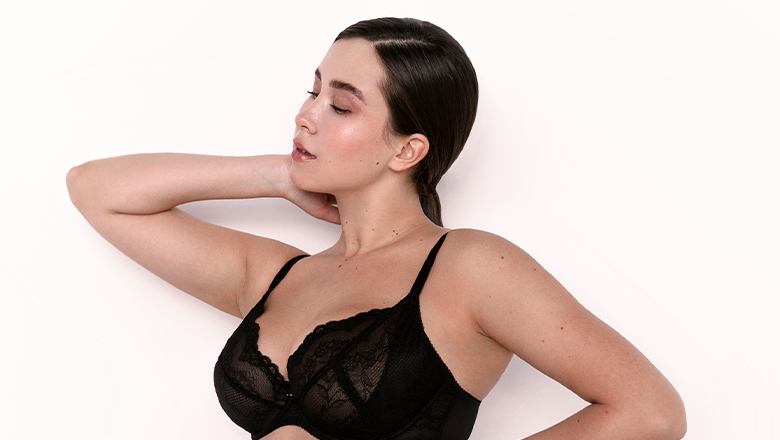
Plastic Surgery Blog


Are you considering a breast reduction procedure? If you’re like many of our patients, it’s likely been on your mind for a long time. If you’re just starting to dip your toe in to research what the whole process looks like, we’re here to give you some more details about what the experience is typically like at The Plastic Surgery Clinic.
Let’s take a look at what this journey usually entails.
So first off, let’s talk about how to know if you’re a good candidate for this surgery. Here’s a checklist of indicators that are most often true for our breast reduction patients.
In addition to these, good candidates typically have fully developed breasts and are able to fully understand what the procedure entails. A good candidate also has realistic expectations about the results that can be achieved with breast reduction.
From our perspective, it’s up to you to choose the approach you feel most comfortable with, depending on whether you prefer to do a lot of research in advance, or if you’d rather leave more of it for your consultation. Sometimes we meet with people who have read up on their surgery but have come across misinformation and our doctors end up spending more of the consult talking about that when what they’d really love to do is assess the patient and give them more tailored information pertinent to their case.
But sometimes doing a lot research in advance can be helpful in driving the conversation and gives you an opportunity to think through all the questions you want to ask in advance. Really, there’s no one right way to approach it, so go with what makes you feel more comfortable.
A few things that would be good for you to know in advance:
You’ll meet your plastic surgeon at your first free consultation with us. During the coronavirus pandemic, you’re also welcome to schedule a virtual consult via video chat or over the phone. The consult process is important because it gives you a chance to ask all of the questions you might have, and it gives your surgeon an opportunity to examine you and let you know what your best surgical options are to achieve your goals.
Some of our patients are very decisive and can decide at the end of their fist consult that breast reduction is right for them. Others need to take more time to think it over, to write down more questions they have, and to talk to trusted friends and family members who know them best. Those patients often come back to see us again to ask their follow up questions. No matter where you fall on that spectrum, we’re happy to talk to you as much as you need to make the best decision for you.
Our consultations are always free for this reason—you should never feel financial pressure to commit to something without knowing you’re ready, and you won’t know until you have all the information that only a consult can give you.
We’ll send you home with a comprehensive info packet. It will tell you everything you need to know about your surgery. Make sure you give it a thorough read. On the day of your surgery, you’ll need someone—known as your caregiver—to bring you home and stay with you the rest of the day and overnight. It’s a good idea to go over the post-surgery protocols in your packet with them so that everyone’s on the same page. But in the event that they have any questions on the day, they can always refer to the information there, or simply give us a call.
You will also need to get an assessment from your family doctor or from a walk in clinic, which we’ll explain more about during your consultation. You’ll be required to have some blood work done to make sure everything’s looking good, safe and healthy for you to be able to undergo an operation. There are medications you’ll be asked to take after your surgery, which you’ll pick up in advance. You might want to go over these with your caregiver as well as you will likely be a bit groggy when you wake up from the anesthesia and it can help to have backup.
It’s totally normal to feel nervous! It’s also really exciting, and just remember, we’ll be here for you every step of the way. Wear really comfy clothes (you’ll be grateful later) including a shirt that zips or buttons up. A shawl or a poncho can be a good option to keep you warm afterwards without requiring you to deal with sleeves, which can be an uncomfortable task after surgery. But if you prefer a cardigan or jacket, your caregiver and our staff can also help you put it back on quite easily.
You’ll need to come in to the clinic without makeup on (this includes nail polish!) and not wearing any jewelry. First you’ll check in, get changed into one of our very glamorous hospital gowns and hang out in a cozy room while you wait. Your surgeon will visit you and prep you by marking your chest and you’ll meet your nurses and your anesthetist. This awesome team is about to take excellent care of you.
You’ll take any preliminary medications you need and then you’ll be set up with your IV. From there, you’ll drift off to sleep and in what seems like no time at all, you’ll wake up, probably a little dazed or groggy, but that’s to be expected and typically subsides after a short time. When you wake up, you likely won’t actually feel any pain, but it will probably feel a bit strange. You’ll also experience a limited range of motion for your arms and upper body.
Once you go home, you’ll rest and relax and find a comfortable way to sleep—most likely propped up on your back. You’ll have gauze dressings over your incisions and you’ll need to wear an elastic bandage or surgical bra overtop of them during this time.
Welcome back! We’re going to see you again the next morning. Similar to your big day, you’ll need someone else to drive you in to your appointment. This is when we’ll check you out just to make certain that everything is going according to plan as we discussed. If any non-urgent questions have come up, this is also a great time to discuss them.
The day after can bring more discomfort than immediately following surgery. This has to do with medication duration and swelling. But it’s not always guaranteed, as every body heals differently. We can also discuss how you’re feeling during this post-op visit and make sure it’s manageable, and we can go over which medications and how much are recommended to relieve your discomfort.
This is your serious downtime—please feel free to take advantage of it. The more you rest, the better your body can heal, which can help you achieve a better result. It’s time for Netflix, books, and podcasts in bed. You might be feeling great, like you could really go out and do anything. That’s awesome! But please don’t. It only impedes the healing process, which means more time before you can get back to life as usual. We know it can be tough, but it’s worth it get tons of rest.
After a few days your bandages or surgical bra will be replaced with a soft support bra, which you’ll get to know quite well as you’ll be wearing it 24/7 for the next three to four weeks.
Throughout the month, you’ll have appointments with our very incredible post-op nurse, Lori. She is your nurse, your educator, and your cheerleader. She’ll let you know how to take care of your incisions as they continue to heal. If you have any questions, you can email her and she’ll be happy to get back to you right away (seriously, she loves answering questions and wants to make sure you’re feeling good).
In the rare event that something concerning comes up, you’ll have a special on-call number to get in touch with your surgeon ASAP.
At one of your appointments a week or two after surgery, you’ll have your stitches removed. Around two weeks out is also the time when you’ll be able to start gently exercising again. But we mean it when we say gently. Walking is good, and the stairmaster is permitted, but you’ll have to avoid running and other high impact cardio, and upper body workouts are also off limits for the time being.
We’ll talk to you about how things are going, but you can probably expect to get back to those after about a month. If you try it and something feels wrong, either modify it to go a little easier until it’s comfortable, or hold off until it feels right. It’s important to listen to your body.
This is when it gets really exciting, as your new look takes shape and you’re feeling more like yourself again. You won’t have to wear the soft support bra around the clock anymore. A lot of breast reduction patients love this period because it’s time to try on clothes they’ve always wanted to wear but either felt uncomfortable, or simply could never find clothes that would fit properly in the chest. And now their back and neck pain has lessened or totally resolved, everything is just that much easier and more comfortable.
You’ll come in to see your surgeon at the one month mark. There will be additional appointments like that to follow at four months, six months, and one year. It’s such a privilege for us to be able to be with you on this journey, and the reward of seeing you looking and feeling your best one year out is truly unparalleled.
If there’s something we haven’t covered here, you can check out our breast reduction overview page, and if you have more questions, feel free to get in touch with us. We’d love to talk to you about it!
Did we answer all your questions? Our goal is to ensure you have the best information possible to make your decision. If you still have questions, we’re here to help.
 Email Us
Email Us
